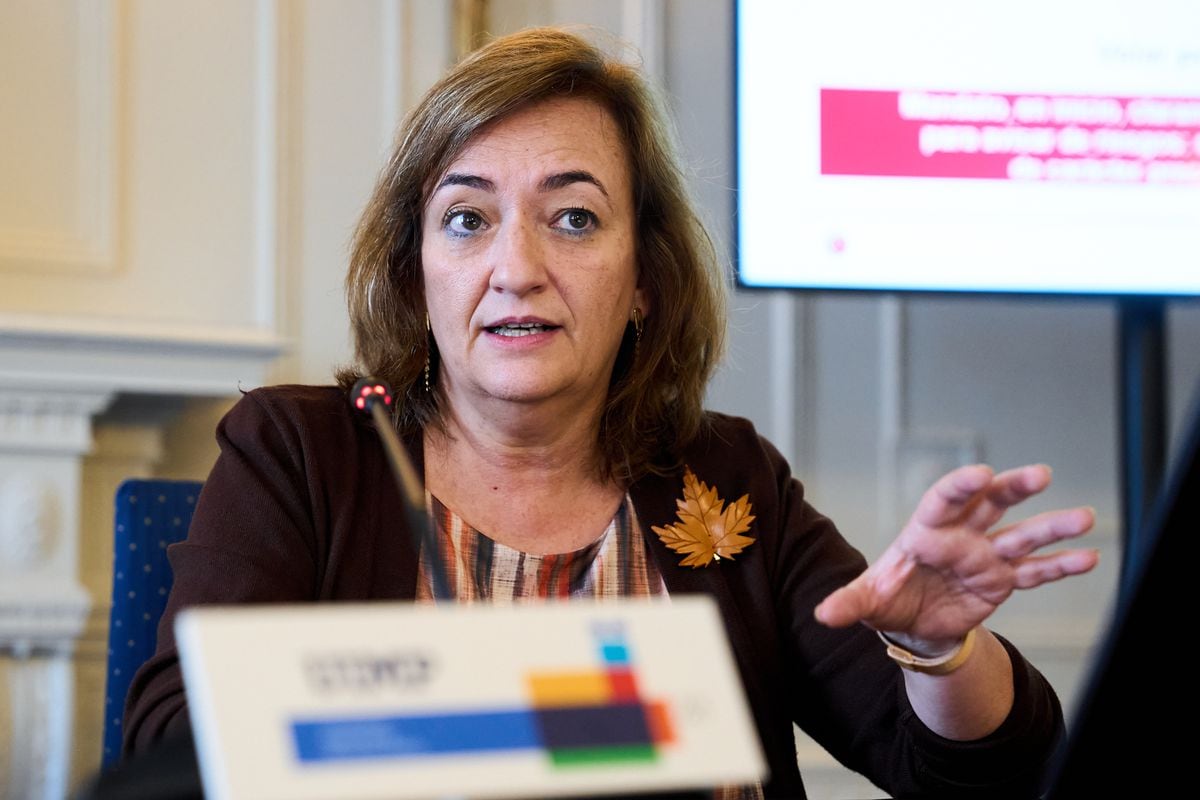The time has not yet come - the rebound is only now beginning to emerge - and the way out of the crisis, as all international organizations have said actively and passively, should not be via austerity. However, the Organization for Economic Cooperation and Development (OECD) is already beginning to think about the day after, when economic growth has taken strong roots and it is time to alleviate the scabech of the pandemic on the treasury. The
think tank
of the rich countries has asked Spain this Thursday to think about a "multi-year plan of gradual fiscal consolidation that includes all levels of the Administration" to "ensure sustainability" of public accounts and announce it "when the recovery is solid ”. "Without a credible medium-term consolidation strategy that allows the public debt to be channeled on a downward and sustainable path, the risks to fiscal sustainability could increase," he remarks while calling for a "gradual improvement in the structural deficit."
"The reduction of public debt over GDP should be prioritized once economic growth is on a solid path," deepens the text presented by the head of the organization, Ángel Gurría, in a joint act with Vice President Nadia Calviño. Spain, however, is not there yet. And until that time comes, the Paris-based entity recommends maintaining an expansive fiscal policy, "prolonging the support measures but also making them more focused."
In the context of a still very weak economy, OECD economists insist in the biannual review of the Spanish economy that "fiscal consolidation should only be done gradually so as not to derail the recovery."
But Spain, they add, should not lose sight of the fact that it has already entered the current crisis with strong long-term imbalances.
A month and a half ago the OECD already suggested to the Pedro Sánchez government to wait to raise taxes - one of the two possible forms of fiscal consolidation - until the recovery was a tangible fact.
At that point he asked him to reduce the exemptions and deductions in VAT and personal income tax, two taxes that add up to three-quarters of the collection, and to raise the surcharge on fuel to reflect its environmental impact.
More information
Airef warns that the debt will stabilize at 120% of GDP in the coming years in the absence of measures
The Bank of Spain figures the excess of business debt at up to 20,000 million
The G7 finalizes a pact to tax the largest companies in the world
These same recommendations are maintained today, but the agency focuses especially on green taxes: it sees "room to improve environmental taxation, generate energy savings and increase collection" and believes that the charges to which fuels are subject "are casualties from an international perspective ”.
"Once the economy is clearly on the path to recovery," he emphasizes again, "these should increase to better reflect the carbon dioxide emissions [associated with them], with redistributive measures targeting the poorest households."
After going abruptly from 95% to 120% of GDP in just one year (2020), the commanded body believes that Spanish debt will close the current year at 119.7% to drop to 117.4% in 2022. With interest rates at minimum levels, as now, these liabilities are easily bankable, but the problem will come the day when the European Central Bank (ECB, by far the largest bondholder) begins the path towards normalization of policy monetary.
More growth in 2021 and especially in 2022
The
think tank
of rich countries will make public its new world macroeconomic picture next Monday, but this Thursday it already advances the key coordinates of Spain. After ostensibly improving its GDP forecast in March, less than three months later the agency once again raised its growth forecast for this year (5.9%, compared to the 5.7% it had seen so far) and, above all, to the next (6.3%, compared to 4.8%) after the brutal landing in 2020, when activity plunged 10.8%.
With these numbers in hand, the Spanish economy would return to its pre-pandemic level in the final stretch of 2022, earlier than the International Monetary Fund (IMF) predicts. And, as the head of the OECD himself has recalled several times throughout the crisis, the debt-to-GDP ratio can be reduced in two ways: reducing the numerator (raising taxes or cutting expenses) or increasing the denominator (growing more).
The new projection for this year coincides with the latest forecast of the European Commission, which 15 days ago placed Spain as the EU country that will grow the most in 2021 and 2022, but next year's is still five tenths below what that draws Brussels. The Spanish Government remains, by far, the most optimistic: it expects GDP to advance by 6.5% this year and 7% next, figures that experts only see feasible if the summer season accompanies. 12% of the activity and almost 13% of the employment depend on tourism.
Unemployment will fall, according to OECD calculations, by one tenth in 2021 (to 15.4%) and seven in 2022 (to 14.7%).
By then, the labor market will not have fully recovered its pre-crisis tone, when unemployment was hovering at 14.1%, but the forecast is notably better than that of the IMF, which does not believe it will return to pre-pandemic levels until 2027 at the earliest.
Pension reform
The OECD observes with concern the evolution of the Spanish demographic curve, one of the fastest aging European countries, and the pressure that this trend will put on public accounts via pensions and higher spending on health. And it asks for the most difficult: "adequate and socially acceptable measures to guarantee the long-term sustainability of the pension system", linking the retirement age with life expectancy at retirement and discouraging early withdrawals, "expanding, for example, the contribution period necessary to collect the full pension ”.
“It is essential to guarantee the financial sustainability of pensions in the medium term. It is congruent: as we live longer, we must increase our working life ”, stressed the Mexican Ángel Gurría, who on Tuesday will hand over the baton to the Australian Mathias Cormann after 15 years at the head of the institution. “Spain has made an enormous effort to face and overcome the crisis. We are heading in the right direction, but it is very important that this moment be used for reforms that rebuild the future ”.
In 2050, according to his calculations, Spain will have one of the highest ratios of retirees to workers in the rich world, with what that entails for Social Security: more spending on pensions, less income from employee contributions.
According to OECD simulations, by then the Spanish public debt will fall to 116% of GDP if the fiscal burdens derived from aging are “compensated”, but it would rise to –attention– 171% if no measures are taken in that direction.
In the best scenario, in which these reforms are applied and, in addition, the economy grows one more percentage point each year, public debt over GDP will fall to 82% in 2050, a value not seen since 2012.
Minimum wage commission
The governing body warns that any new increase in the minimum wage - after the last two increases - must be "in line with the changing conditions of the labor market and productivity." In light of the preliminary data available, OECD technicians are not particularly concerned about the latest increases - "initial evaluations suggest that the adverse effect on employment was low in 2019" - but they do ask the Spanish authorities new studies to assess impacts as data becomes available. And, above all, it urges the creation of a permanent commission that "periodically evaluates the changes" in this indicator.







/cloudfront-eu-central-1.images.arcpublishing.com/prisa/BSW76ADTMZBGXEN5B5THLU2R7M.jpg)







